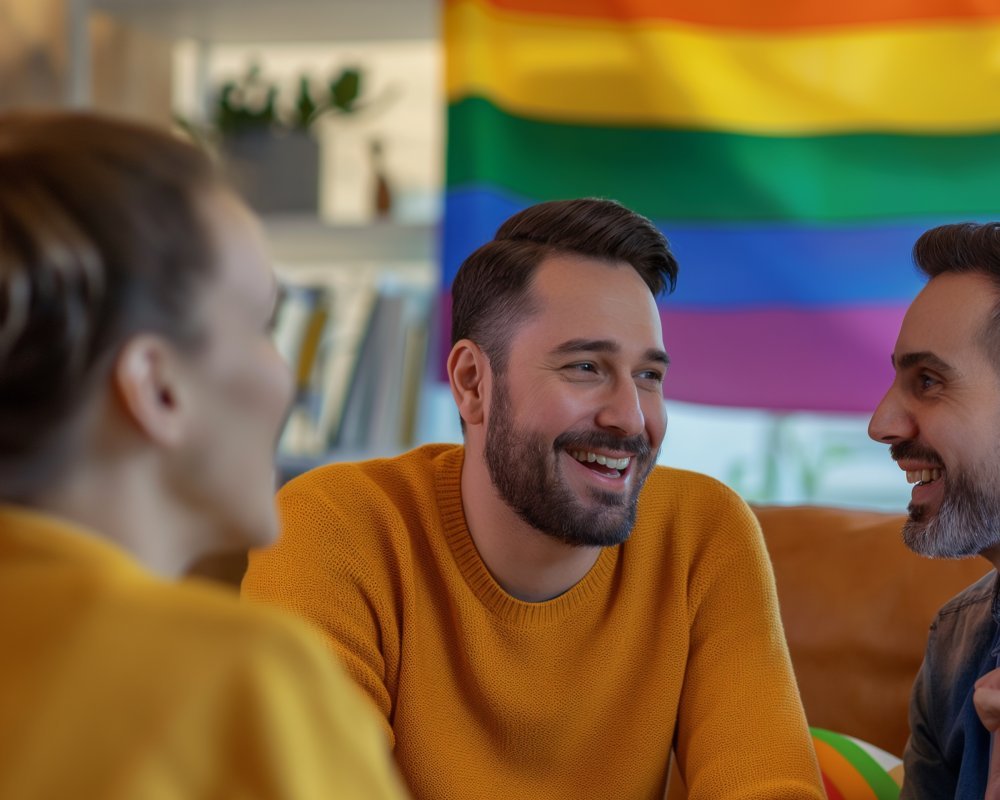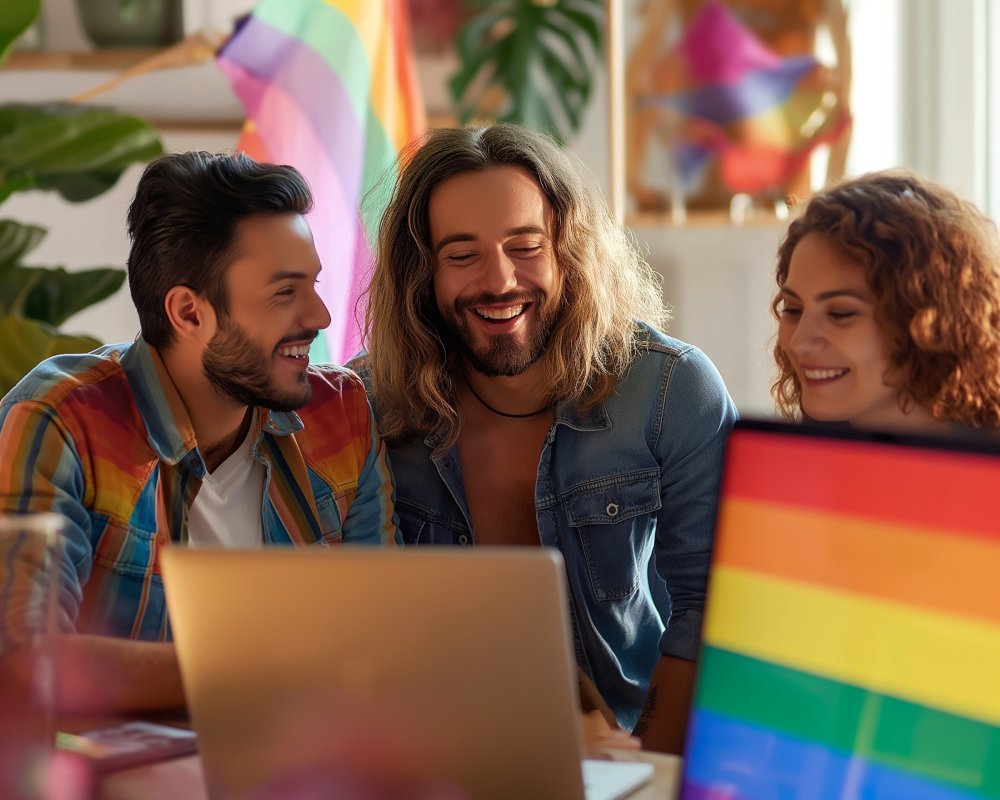
Exploring the Role of Gay Leaders in Social Movements – Leadership plays a crucial role in driving social movements forward, and within the LGBTQ community, gay leaders have been at the forefront of advocating for equality and social change. In this blog, we will explore the important role that gay leaders have played in shaping social movements, from the early days of the LGBTQ rights movement to the present day. We will delve into the benefits of having gay leaders at the helm of social movements, the challenges they face, and the valuable contributions they bring to the table.
From the Stonewall Riots of 1969 to the fight for marriage equality and beyond, gay leaders have been instrumental in pushing for LGBTQ rights and visibility. Their firsthand experiences as members of the LGBTQ community give them a unique perspective on the issues facing their fellow community members. This personal connection allows them to empathize with the struggles of their peers and advocate for change with passion and authenticity.
One of the key benefits of having gay leaders in social movements is the sense of representation and empowerment they provide to LGBTQ individuals. Seeing someone who looks like them, who shares their experiences and struggles, in a position of leadership can have a powerful impact on members of the LGBTQ community. It sends a message that their voices are being heard, their concerns are being addressed, and their rights are being fought for.
Moreover, gay leaders bring a wealth of knowledge and expertise to the table, honed through their lived experiences and their work within the LGBTQ community. They understand the intricacies of the issues at hand, from discrimination and violence to healthcare disparities and workplace inequality. This deep understanding allows them to craft effective strategies for advocacy and create meaningful change on a systemic level.
Another important aspect of gay leadership in social movements is the ability to bridge divides within the LGBTQ community and build coalitions with other marginalized groups. By fostering solidarity and collaboration, gay leaders can amplify the voices of all LGBTQ individuals, including those who are often marginalized within the community, such as transgender, queer, and BI individuals. This inclusive approach helps to create a more diverse and united front in the fight for equality.
Despite the invaluable contributions of gay leaders to social movements, they also face unique challenges and obstacles in their advocacy work. Homophobia and discrimination can still be pervasive, even within progressive spaces, leading to backlash and resistance from those who are opposed to LGBTQ rights. This can create additional pressure and scrutiny for gay leaders, as they navigate the complexities of leading a movement while facing discrimination themselves.
Moreover, the intersectionality of identities adds another layer of complexity for gay leaders, particularly those who belong to multiple marginalized groups. They must navigate the nuances of their intersecting identities, advocating for both their LGBTQ community and their other marginalized communities. This requires a delicate balance and a nuanced understanding of the ways in which different forms of oppression intersect and impact individuals differently.
Despite these challenges, gay leaders continue to make valuable contributions to social movements, propelling the LGBTQ rights movement forward and advocating for a more just and inclusive society. Their resilience, passion, and dedication serve as an inspiration to us all, reminding us of the power of leadership in driving social change. As we continue to explore the role of gay leaders in social movements, let us celebrate their achievements, learn from their experiences, and support their ongoing work for equality and justice for all.
Benefits of Gay Leaders in Social Movements
Having gay leaders at the forefront of social movements brings a myriad of benefits to the LGBTQ community and society as a whole. Their unique perspective, passion, and advocacy work have a profound impact on driving positive change and advancing equality for all. Here are some of the key benefits of having gay leaders in social movements:
1. Representation and Empowerment: Gay leaders provide representation and empowerment to LGBTQ individuals, offering a voice to those who have been marginalized and underserved. Seeing someone who shares their experiences and struggles in a position of leadership can inspire others to speak out, stand up, and make their voices heard.
2. Expertise and Experience: Gay leaders bring a wealth of expertise and experience to their advocacy work, garnered through their lived experiences and their deep engagement with the LGBTQ community. They understand the nuances of the issues at hand and are able to craft effective strategies for advocacy and change.
3. Solidarity and Collaboration: Gay leaders have the unique ability to build bridges within the LGBTQ community and create coalitions with other marginalized groups. By fostering solidarity and collaboration, they amplify the voices of all LGBTQ individuals, creating a more united front in the fight for equality.
4. Intersectional Advocacy: Gay leaders navigate the complexities of their intersecting identities, advocating for both their LGBTQ community and their other marginalized communities. By acknowledging the intersections of different forms of oppression, they ensure that all voices are heard and all needs are addressed.

Challenges Faced by Gay Leaders in Social Movements
While gay leaders make invaluable contributions to social movements, they also face unique challenges and obstacles in their advocacy work. Homophobia, discrimination, and intersectionality can complicate their efforts and create additional barriers to progress. Here are some of the challenges faced by gay leaders in social movements:
1. Homophobia and Discrimination: Gay leaders often face backlash and resistance from those who are opposed to LGBTQ rights, leading to discrimination and harassment in their advocacy work. Homophobia can still be pervasive, even within progressive spaces, creating obstacles for gay leaders to navigate.
2. Intersectionality of Identities: Gay leaders who belong to multiple marginalized groups must navigate the complexities of their intersecting identities, advocating for both their LGBTQ community and their other marginalized communities. This requires a nuanced understanding of how different forms of oppression intersect and impact individuals differently.
3. Inequality and Injustice: Gay leaders work tirelessly to address inequality and injustice within the LGBTQ community and society at large, facing systemic barriers and challenges along the way. Their advocacy work is often met with resistance and pushback, requiring resilience and determination to overcome.
4. Mental Health and Well-being: The emotional toll of advocacy work can take a significant toll on gay leaders, impacting their mental health and well-being. The constant pressure, scrutiny, and discrimination they face can lead to burnout, stress, and fatigue, requiring self-care and support to maintain their resilience.
Advertisement · Scroll to continue
Recommended
Tips for Supporting Gay Leaders in Social Movements
As we recognize the important role that gay leaders play in shaping social movements, it is crucial to offer them support, solidarity, and resources to help them thrive in their advocacy work. Here are some tips for supporting gay leaders in social movements:
- Listen and Learn:
- Provide Resources and Opportunities:
- Amplify Their Voices:
- Practice Intersectional Solidarity:
- Offer Emotional Support:
Take the time to listen to the experiences and perspectives of gay leaders, and learn from their insights and expertise. Engage with their advocacy work, amplify their voices, and show your support for their efforts.
Offer resources, opportunities, and platforms for gay leaders to share their work, connect with allies, and collaborate with other advocates. Provide funding, mentorship, and training to help them expand their impact and reach.
Amplify the voices of gay leaders by sharing their stories, advocating for their causes, and uplifting their messages. Use your platform, influence, and privilege to raise awareness and support for their advocacy work.
Practice intersectional solidarity by acknowledging and addressing the intersections of different forms of oppression within social movements. Support gay leaders who belong to multiple marginalized groups, and ensure that all voices are heard and represented.
Offer emotional support, understanding, and empathy to gay leaders as they navigate the challenges and obstacles of advocacy work. Check in with them regularly, provide a listening ear, and prioritize their mental health and well-being.
By offering support and solidarity to gay leaders in social movements, we can help them thrive and continue to drive positive change and progress for the LGBTQ community and society as a whole. Let us celebrate their achievements, learn from their experiences, and stand together in the fight for equality and justice for all.

Conclusion
As we explore the role of gay leaders in social movements, we are reminded of the invaluable contributions they make to advancing equality, justice, and social change. Their representation, expertise, and resilience are essential to driving progress within the LGBTQ community and society at large. By supporting and amplifying the voices of gay leaders, we can create a more inclusive, equitable, and just world for all. Let us continue to celebrate their achievements, learn from their experiences, and stand in solidarity with them as we work towards a brighter and more inclusive future for all. Together, we can build a world where LGBTQ individuals are valued, respected, and empowered to thrive. Thank you to all the gay leaders who have dedicated their lives to making a difference and shaping a better world for us all.
The role of gay leaders in social movements is crucial to driving positive change and progress for the LGBTQ community and society as a whole. Their representation, expertise, and advocacy work are essential to advancing equality, justice, and inclusivity for all. As we celebrate their achievements and honor their contributions, let us continue to support and stand in solidarity with gay leaders, amplifying their voices and advocating for a more just and equitable world. Together, we can create a future where LGBTQ individuals are valued, respected, and empowered to thrive. Thank you to all the gay leaders who have dedicated themselves to making a difference and shaping a better world for us all. Let us continue to explore the role of gay leaders in social movements and work towards a brighter and more inclusive future for all.
Advertisement · Scroll to continue

More Recommended
Mykonos Gay Travel Guide: Where to Stay & Party
Mykonos Gay Travel Guide: Where to Stay & Party – Welcome to Gay Thrive’s comprehensive [...]
Empowering Representation: Why Supporting Lesbian-Owned Brands Matters in Advertising
Why Supporting Lesbian-Owned Brands Matters in Advertising Lesbian-owned brands are breaking barriers in the advertising [...]
Can You Require Employees Attend Diversity Training?
Can You Require Employees Attend Diversity Training? – In today’s diverse and inclusive workplace environments, [...]
Championing Visibility: The Power of LGBTQ+ Advertising Campaigns
Championing Visibility: The Power of LGBTQ+ Advertising Campaigns In today’s rapidly changing society, visibility and [...]
How Can I Support Gay Rights in My Community?
How Can I Support Gay Rights in My Community? – Supporting gay rights in your [...]
Who qualifies as a DEI hire?
Who qualifies as a DEI hire? – At its core, Diversity, Equity, and Inclusion (DEI) [...]
From Advertising to Advocacy: Target’s Impact on the Lesbian Community
From Advertising to Advocacy: Target’s Impact on the Lesbian Community Target, the retail giant, has [...]
Why Do So Many LGBTQ+ People Love Urbanism?
Why Do So Many LGBTQ+ People Love Urbanism? Urbanism, the way cities are planned, developed, [...]
Why Is It Important to Be Out and Proud?
Why Is It Important to Be Out and Proud? – Being out and proud as [...]